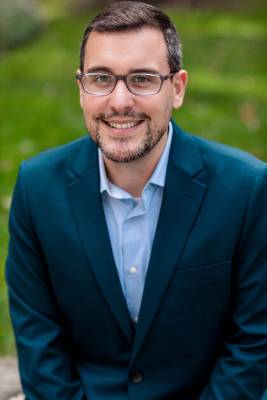Message from the Dean
 Greetings and welcome to Loyola College, Loyola University Maryland's school of arts
and sciences. As Dean, it's my great pleasure to share with you the vast array of
areas of study we have within the College. All of these are offered within the context
of a liberal arts university. Being a liberal arts university has nothing to do with
an affiliation with a political party. It is about being and becoming free people.
Freedom is both a gift and an achievement. We in Loyola College believe that true
freedom cannot be fully realized without constant development of mind and heart through
lifelong learning. Our work is focused on expanding ways of thinking and perceiving
the world in order to fully realize the potential of each of our students.
Greetings and welcome to Loyola College, Loyola University Maryland's school of arts
and sciences. As Dean, it's my great pleasure to share with you the vast array of
areas of study we have within the College. All of these are offered within the context
of a liberal arts university. Being a liberal arts university has nothing to do with
an affiliation with a political party. It is about being and becoming free people.
Freedom is both a gift and an achievement. We in Loyola College believe that true
freedom cannot be fully realized without constant development of mind and heart through
lifelong learning. Our work is focused on expanding ways of thinking and perceiving
the world in order to fully realize the potential of each of our students.
We invite you to explore new areas of study in the humanities, social sciences, and natural and applied sciences as well as the opportunity to hone your skills in familiar ones. These disciplines are represented in the undergraduate core curriculum, a variety of classic liberal arts majors and minors, more professionally oriented majors and minors, and our graduate programs.
A distinctive element of Jesuit universities is the undergraduate core curriculum. Since the founding of the first Jesuit university over 450 years ago, the specific courses in the core have changed, but the foundation remains the same: that all of our Loyola students become ethical, engaged citizens who are critical thinkers, creative problem solvers, and clear communicators, cognizant of the fundamental tensions between faith and reason. Students take courses in philosophy, theology, English, history, fine arts, languages, mathematics, the sciences, and the social sciences. Find out more about Loyola's core curriculum.
Loyola College offers traditional liberal arts as well as professionally focused majors in three disciplinary divisions: Humanities, Social Sciences, and Natural and Applied Sciences. Study in the Humanities is the study of the human experience broadly conceived—history, language, rhetoric, philosophy, theology, and the arts. The study of societies and how individuals interact with each other and the world around them is the focus of the Social Sciences. Major areas of disciplinary focus include political science, psychology, sociology, and, in concert with the Sellinger School of Business and Management, Economics. The Natural and Applied Sciences include mathematics and the bench sciences, such as biology, chemistry and physics as well as applied areas of engineering, computer sciences, and statistics. Many of our departments offer the chance for students to pursue interdisciplinary majors (e.g., Psychology and Writing, English and Communication, Biology and Political Science).
Graduate programs in Loyola College focus on advancement of knowledge within a discipline or advanced training in various service professions. Research degrees are available at the master's level in theology and psychology. Professional service degrees are available in speech-language pathology and at the doctoral level in psychology. We offer an online degree, with two courses in residence, in Emerging Media. Training opportunities within various graduate programs are available at the Loyola Clinical Centers.
Welcome to Loyola College. We hope that you will explore our site to find the area of study that will lead you to a lifetime of personal and professional fulfillment.
Frank D. Golom, Ph.D.
Dean, Loyola College